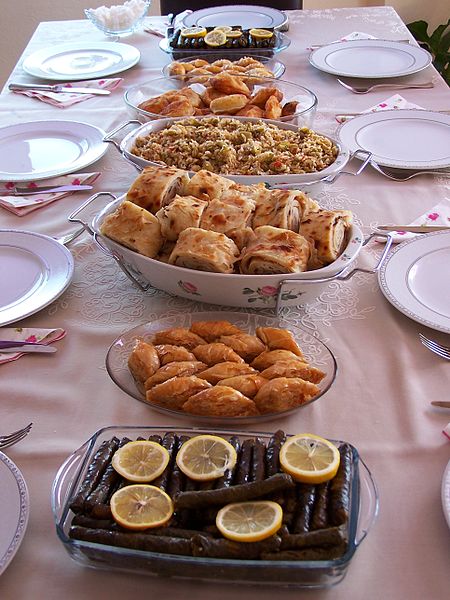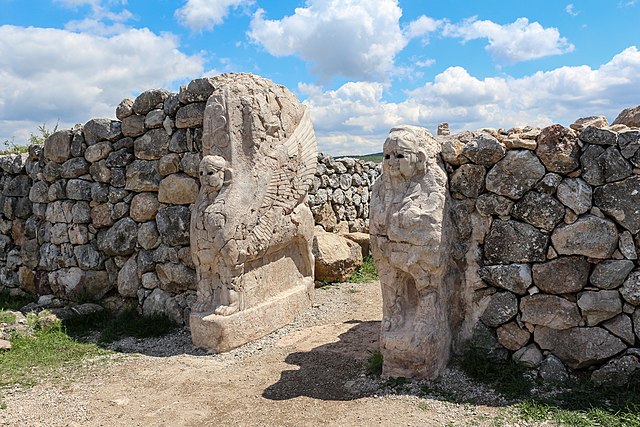Turkish cuisine is the cuisine of Turkey and the Turkish diaspora. Although the cuisine took its current rich form after numerous cultural interactions throughout centuries, it should not be confused with other cuisines such as Ottoman cuisine or Seljuk cuisine. Turkish cuisine with traditional Turkic elements such as yogurt, ayran, kaymak, exerts and gains influences to and from Mediterranean, Balkan, Middle Eastern, Central Asian and Eastern European cuisines.
Turkish cuisine
Simit, a circular bread with sesame seeds, is a common breakfast item in Turkey.
Food from Turkey including börek and sarma
Adana kebabı
Turkey, officially the Republic of Türkiye, is a country mainly in Anatolia in West Asia, with a smaller part called East Thrace in Southeast Europe. It borders the Black Sea to the north; Georgia, Armenia, Azerbaijan, and Iran to the east; Iraq, Syria, and the Mediterranean Sea to the south; and the Aegean Sea, Greece, and Bulgaria to the west. Turkey is home to over 85 million people; most are ethnic Turks, while ethnic Kurds are the largest ethnic minority. Officially a secular state, Turkey has a Muslim-majority population. Ankara is Turkey's capital and second-largest city; Istanbul is its largest city, and its economic and financial center, as well as the largest city in Europe. Other major cities include İzmir, Bursa and Antalya.
Some henges at Göbekli Tepe were erected as far back as 9600 BC, predating those of Stonehenge by over seven millennia.
The Sphinx Gate of Hattusa, the capital of the Hittites
The Temple of Zeus in the ancient city of Aizanoi in Phrygia
The Sebasteion of Aphrodisias, a city named after Aphrodite, the Greek goddess of beauty. In 2017, it was inscribed on the UNESCO World Heritage Site list.








